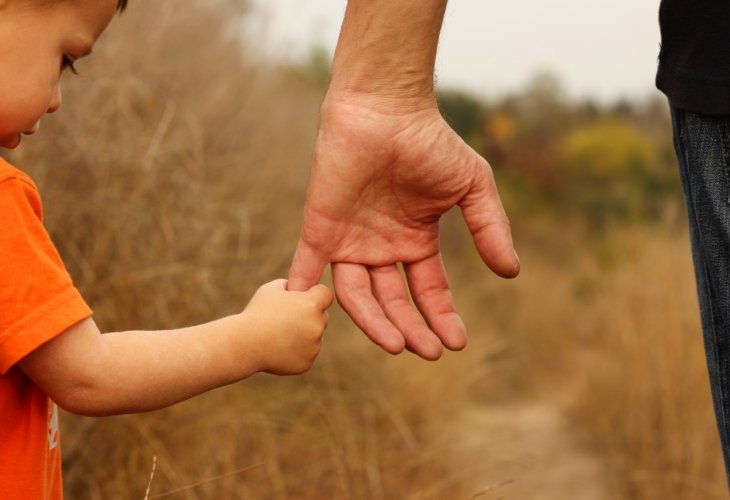Personality Development
Foundations of Education – Timeless Wisdom and Insights (Part V)
Discover Powerful Principles for Raising Children with Love, Discipline, and Spiritual Awareness in a Modern World
 (Photo: shutterstock)
(Photo: shutterstock)1. "The atmosphere of the home and the prevailing emotional tone educate more than any words ever could. They are the most influential factor in a child’s upbringing. This idea is hinted at in what the Sages said about the daughter of the priestly family of Bilga, who abandoned her faith and kicked at the altar, mocking it by saying: ‘Wolf, wolf, how long will you consume the money of Israel?’ When the sages heard this, they penalized the entire family of Bilga. Why? Because, as the saying goes: ‘The child’s chatter in the marketplace reflects what they hear at home- from their father or mother.’
If the home and community she came from held the altar in awe and sanctity, and if people spoke about it with trembling reverence, she would never have descended to such spiritual poverty as to speak of it in such a disgraceful way. This indicates that the family and community were lacking, and must have spoken lightly about sacred matters. That atmosphere is what led her to say such things. The same is true when it comes to instilling reverence for holiness: the emotional environment of the home lays the foundation and sets the tone for how children relate to everything sacred."
(Rebbe of Slonim, "Netivei HaChinuch", p. 20)
2. "Just as each child must be educated according to their unique personality, as it says, 'Educate the child according to their way'- so too, we must apply this on a generational level: ‘Educate the generation according to its way.’
Torah education must be tailored to our times. We need an education that cultivates people with high spiritual aspirations, as in the verse, ‘His heart was uplifted in the ways of G-d.’ In an age where forces of spiritual pollution and disbelief are overwhelming, our mission is to counter those forces with powerful holiness and unwavering faith.”
(Rebbe of Slonim, "Netivei HaChinuch", p. 8)
3. "Moses said to Joshua, ‘Choose for us men and go out to fight Amalek.’”
The Mechilta explains: "Let every person learn proper manners from Moses. He didn’t say ‘choose men for me,’ but ‘for us’- demonstrating that he viewed Joshua as an equal. From this we learn that a student should be precious to their teacher like their own self.”
4. “The reason punishments are necessary is because human wisdom is limited. It cannot always provide enough foresight to guide the naive.
Society must use consequences to preserve order and protect the vulnerable from those who are physically stronger but mentally weaker. Punishment should come only with deep sorrow that it was necessary at all.”
(Chazon Ish, Orach Chaim, sec. 56, letter 4)
5. “If a child finds it difficult to stay focused on learning, entice him with things children love- like sweets and treats- and say: 'If you go to school and learn, this is for you.’ And as he grows...”
(Reishit Chochmah, "Raising Children" chapter)
6. “One must not tell a child, ‘I’ll give you something,’ and then not follow through.
This teaches them to lie. Aside from other harms, the Talmud highlights this as a primary moral issue.”
7. “Excessive punishment creates many problems.
First, the child stops being afraid of the punishment because they’ve become accustomed to it. Second, it breeds cruelty. The child may feel their parents or teachers hit them not out of care but because they can- because the child can’t fight back. The child imitates them and hits those weaker than them: siblings, peers, etc.
Worse still is when punishment is given in anger. Anger, say the Sages, is akin to idolatry. It clouds judgment, drives away the soul, and fills the person with chaos. How can we expect education for the sake of G-d to grow out of such a state?
According to the Torah, if physical punishment is ever truly necessary, it must be done with great calm and clarity- never in anger.”
(Rebbe of Slonim, "Netivei HaChinuch", p. 34)
8. “Often, the children who seem the most difficult are the ones who grow up to become great leaders in Israel.
Their ‘problems’ stem from the fact that they are extraordinary children, not ordinary ones.”
(Rebbe of Slonim, "Netivei HaChinuch", p. 30)
9. “Some people are considered good educators simply because they enforce order and discipline.
When in reality, they are good disciplinarians, but not true educators. True education isn’t about forcing a child into good behavior, but about guiding them to want to do what’s right.
At the beginning, a teacher may need to act as ‘police officer’ to set boundaries. This is only a starting point but not the essence of education.”
(Rebbe of Slonim, "Netivei HaChinuch", p. 14)
10. “Instead of telling a child, ‘Get out of the room,’ say, ‘Please go into the other room.’
The tone and wording of every instruction or correction matter greatly.”
(Rebbe of Slonim, "Netivei HaChinuch")
11. “Don’t pressure children- speak to them gently.
True learning settles only in a calm and peaceful mind. Give them small coins or simple treats to encourage them gently.”
(Letter of the Vilna Gaon)

